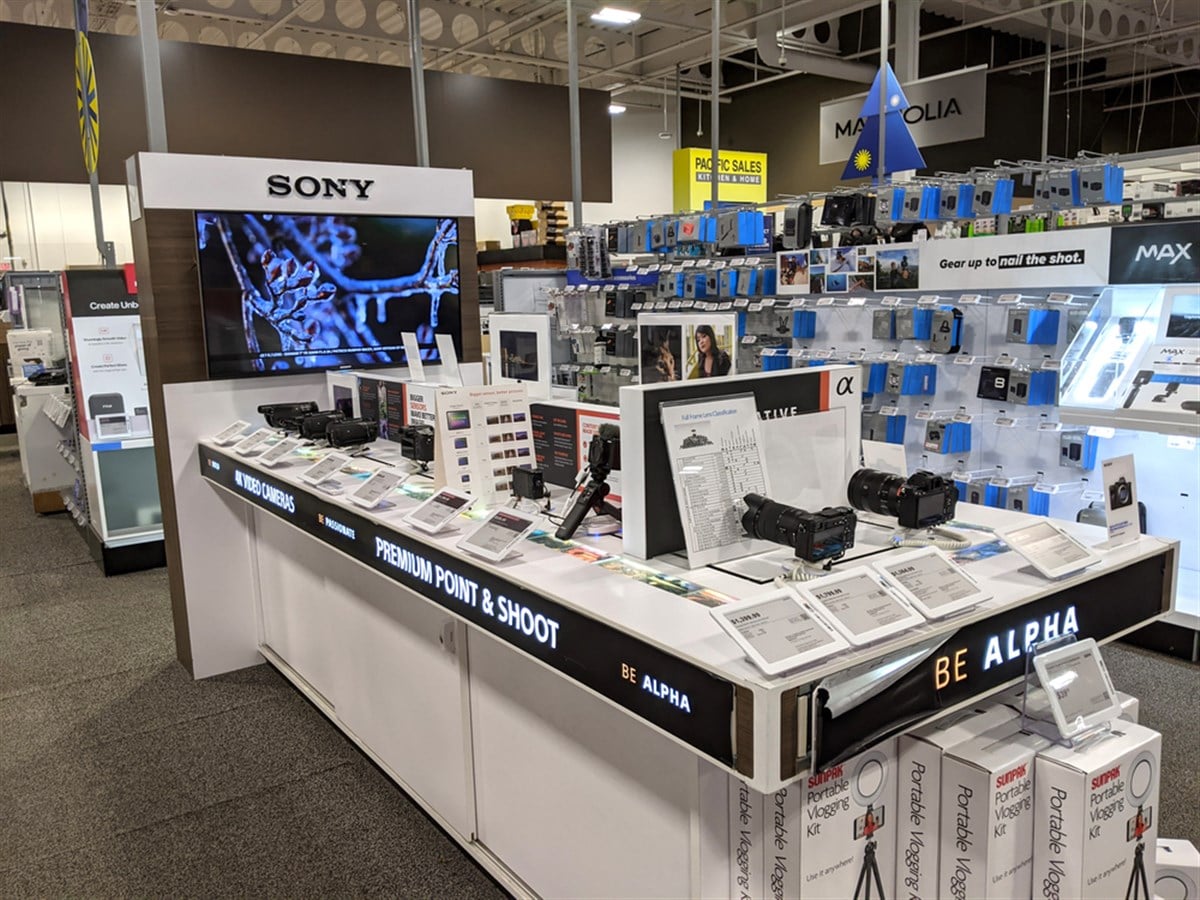
Best Buy (NYSE: BBY) has been attempting to navigate a difficult retail sector environment marked by declining sales and increased competition from e-commerce giants. Best Buy’s earnings report for the second quarter of fiscal year 2025 (Q2 FY2025) was recently released, offering some promising signals for investors.
Best Buy’s financial report release unveiled an earnings beat on revenue and earnings per share, providing insights into the company's financial health and prospects. However, the report also highlighted Best Buy's ongoing challenges and its strategic initiatives to address them.
Best Buy’s Q2 FY2025 Numbers
In the Q2 FY2025 earnings report, Best Buy reported revenue of $9.29 billion, exceeding analyst expectations of $9.24 billion. This represents a slight decline from last year, when the company generated $9.58 billion in revenue. However, despite a year-over-year decline of 3.1%, the revenue figure indicates the company's efforts to drive sales growth are showing some traction.
Earnings per share (EPS) in the quarter reached $1.34, surpassing Best Buy’s analyst community estimates of $1.16, an improvement from the $1.25 EPS recorded in the same quarter a year earlier. The company's profitability performance demonstrates the effectiveness of its efforts to drive efficiency and focus on higher-margin products and services.
Same-store sales, a critical metric for retail businesses, decreased by 2.3% during the quarter compared to a 6.2% decline in the same period last year. While this marks an improvement, it still reflects Best Buy's ongoing challenges in driving customer traffic and maintaining sales at existing stores. The decline in same-store sales is likely influenced by a combination of factors, including the impact of inflation, a shift in consumer discretionary spending habits, and increased competition from online retailers. However, the report highlighted that the company saw strong comparable sales growth in the domestic tablet and computing categories, demonstrating the potential for future growth.
Best Buy's Strategic Response
To address these challenges and drive future growth, Best Buy is implementing a multi-pronged strategic approach to enhance its customer experience, improve its market positioning, and expand its profitability.
The company is focused on "sharpening" its customer experiences, a key component of its turnaround strategy. This involves enhancing its stores, investing in its mobile app, and expanding its services business. Best Buy aims to create a more engaging and convenient customer shopping experience by offering personalized services and tailored product recommendations.
Best Buy is also expanding its non-GAAP operating income rate, a key indicator of profitability. This strategy aims to maximize efficiency and minimize expenses while maintaining revenue growth. By streamlining operations, optimizing inventory management, and reducing overhead costs, Best Buy is targeting higher profit margins without sacrificing its commitment to growth.
Another strategic focus is enhancing its services business, including product installation, technical support, and home theater design. This strategic initiative aims to generate recurring revenue streams and differentiate Best Buy from its online competitors, which often lack the same level of personalized services.
Additionally, Best Buy is investing in artificial intelligence (AI) driven product offerings. The company believes that AI-powered devices and applications will drive future growth in the consumer electronics market. Best Buy is strategically positioning itself as a leader in this emerging segment, offering customers a wide range of AI-enabled products and providing expert guidance on their usage and benefits.
Beyond the Numbers: What Are Investors Saying About Best Buy?
Following the release of the Q2 FY2025 earnings report, shares of Best Buy jumped more than 15% in premarket trading, signaling investor optimism about the company's prospects. This bullish reaction reflects the company's ability to exceed analyst expectations and focus on strategic initiatives to drive growth and profitability.
Analysts have also been increasingly optimistic about Best Buy's future. Loop Capital boosted its price target on Best Buy from $93.00 to $100.00, giving the stock a buy rating. Wedbush, however, reaffirmed a neutral rating and set a $85.00 price target on shares of Best Buy in a recent research note. This divergence of opinion among analysts highlights the ongoing debate about Best Buy's future.
Insider trading activity also offers insights into the company's prospects. In another Best Buy news article, Chairman Richard M. Schulze sold 1,000,000 shares of the stock in a transaction recently. The shares were sold at an average price of $88.25 for a total transaction of $85,850,000.00. Following the transaction, the chairman now directly owns 15,890,103 shares in the company, valued at approximately $1,364,165,342.55. While insider sales can sometimes be a cause for concern, it's essential to consider the context and motivations behind these transactions. In this case, the insider sales might reflect the chairman's financial needs or a belief that the stock is currently overvalued. However, the fact that he still holds a significant stake in the company suggests long-term confidence in its prospects.
The Verdict: Is Best Buy a Buy?
Best Buy's Q2 FY2025 earnings report offered mixed results, providing evidence of both progress and challenges. The company's ability to beat analyst expectations on revenue and EPS is a positive signal, but the decline in same-store sales underscores its ongoing challenges. The company's strategic initiatives, including its focus on enhancing the customer experience, expanding its services business, and investing in AI-driven products, offer potential for growth. Still, the impact of these initiatives on the company's financial performance will need to be closely monitored.
For investors, the decision of whether or not to invest in Best Buy is a complex one. The company's financial performance is solid, and its strategic initiatives offer potential for growth, but the macroeconomic environment remains challenging, and the competitive landscape is increasingly complex. Investors should carefully consider all of these factors before making any investment decisions. Conducting thorough due diligence and analyzing the company's financial statements, industry trends, and competitor landscape is crucial before making any investment decisions.














